19 Animal Species Discovered in 2014
godimgay
Published
12/19/2014
Amazing how many animals we are still discovering every year.
- List View
- Player View
- Grid View
Advertisement
-
1.
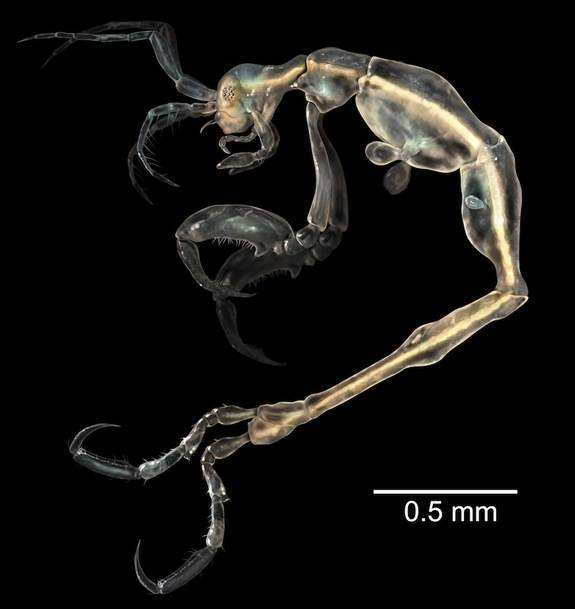 Skeleton Shrimp. This tiny shrimp, measuring in at only a few millimeters long, lives in sea caves on Santa Catalina Island off the coast of California.
Skeleton Shrimp. This tiny shrimp, measuring in at only a few millimeters long, lives in sea caves on Santa Catalina Island off the coast of California. -
2.
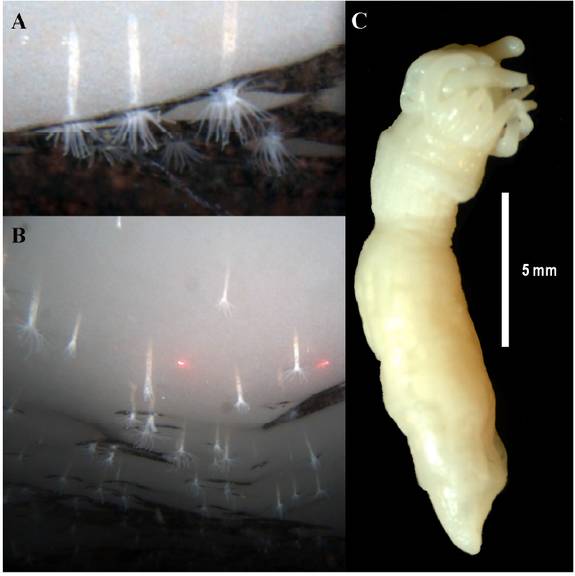 Ice Anemones. A new species of anemone was discovered living under the ice in the Antarctic Sea. It was discovered by accident when a group of geologists was testing a new robot. They saw these guys growing upside down from the ice - the first of its kind to do so.
Ice Anemones. A new species of anemone was discovered living under the ice in the Antarctic Sea. It was discovered by accident when a group of geologists was testing a new robot. They saw these guys growing upside down from the ice - the first of its kind to do so. -
3.
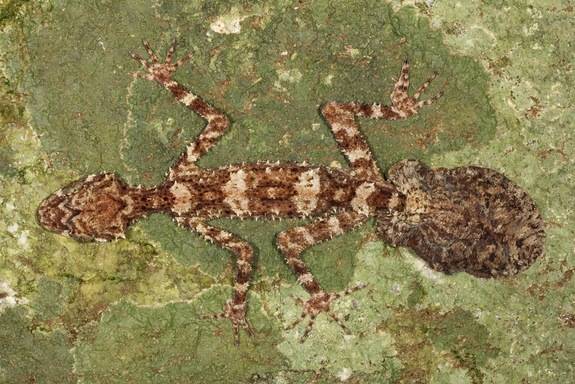 Leaf Tailed Gecko. This creepy lizard lives in the remote rain forests of northern Australia. The leaf-like tail provides camouflage in their habitat, blending in with lichen or tree trunks.
Leaf Tailed Gecko. This creepy lizard lives in the remote rain forests of northern Australia. The leaf-like tail provides camouflage in their habitat, blending in with lichen or tree trunks. -
4.
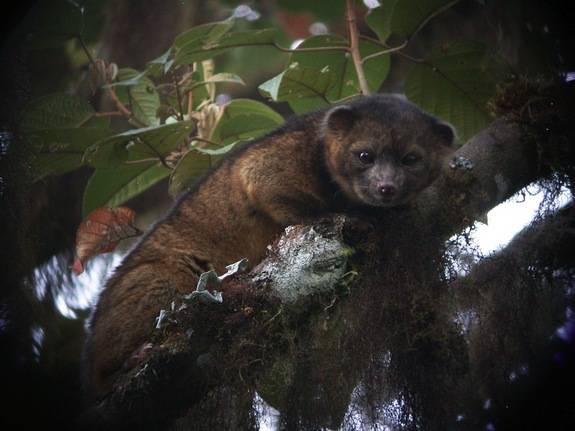 Tree Living Olinguito. This furry creature is the first new carnivorous mammal to be discovered in the Western Hemisphere in 35 years.
Tree Living Olinguito. This furry creature is the first new carnivorous mammal to be discovered in the Western Hemisphere in 35 years. -
5.
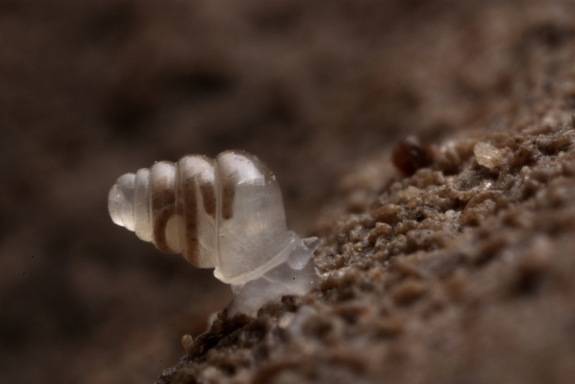 Transparent Snail. Due to his dark habitat in the caves of Croatia, this tiny snail has zero pigment and no eyes. Thanks, evolution, for being really cool.
Transparent Snail. Due to his dark habitat in the caves of Croatia, this tiny snail has zero pigment and no eyes. Thanks, evolution, for being really cool. -
6.
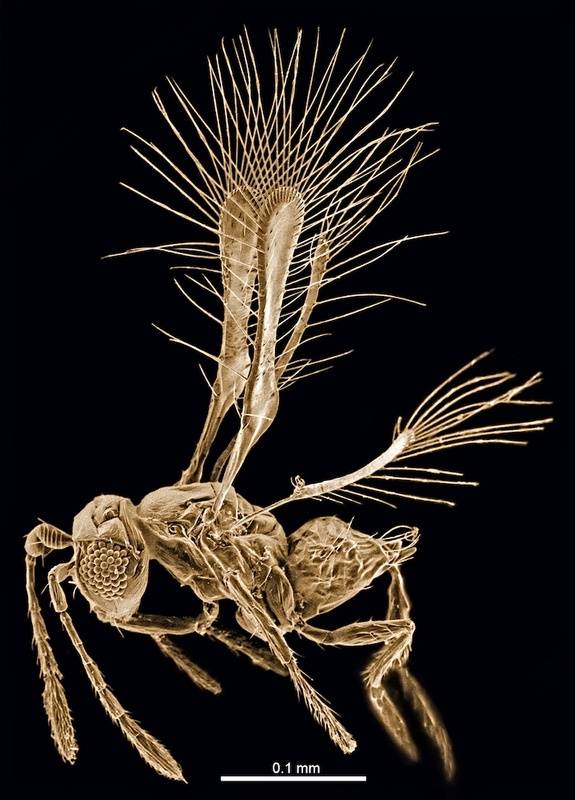 Tinkerbell Fairyfly. This tiny fairyfly is joining a family of about 1,400 species. In case you ARE wondering, yes, it's named after Peter Pan's sassy sidekick, as well as after Nana, the dog in the story.
Tinkerbell Fairyfly. This tiny fairyfly is joining a family of about 1,400 species. In case you ARE wondering, yes, it's named after Peter Pan's sassy sidekick, as well as after Nana, the dog in the story. -
7.
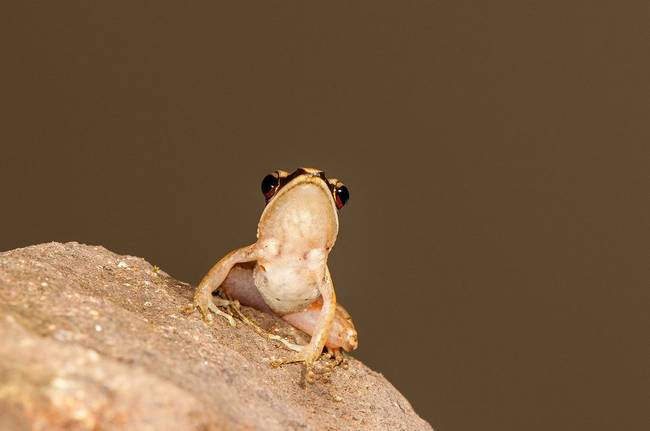 Urban Golden Backed Frog. This city-dwelling amphibian is one of seven new species of golden-backed frogs discovered in Sri Lanka and India. This one, in particular, is only found living in ponds surrounded by heavily urbanized areas. However, that doesn't mean he choose city ponds as his surroundings it's likely that the species was there before the cities.
Urban Golden Backed Frog. This city-dwelling amphibian is one of seven new species of golden-backed frogs discovered in Sri Lanka and India. This one, in particular, is only found living in ponds surrounded by heavily urbanized areas. However, that doesn't mean he choose city ponds as his surroundings it's likely that the species was there before the cities. -
Advertisement
-
8.
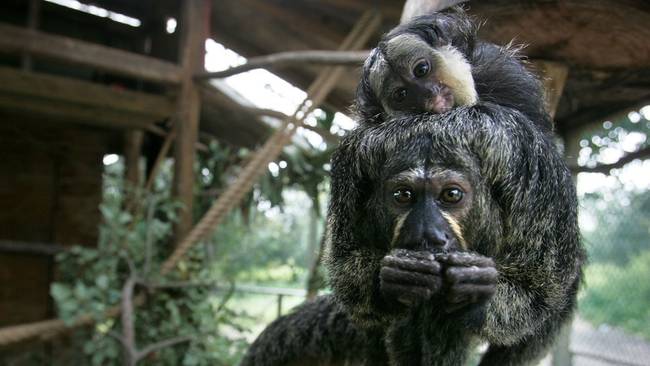 Isabel's Saki. While there were once only five recognized species of Saki Monkey, there are now 16, as per a study published this summer. Isabel's Saki is one of the newly recognized species.
Isabel's Saki. While there were once only five recognized species of Saki Monkey, there are now 16, as per a study published this summer. Isabel's Saki is one of the newly recognized species. -
9.
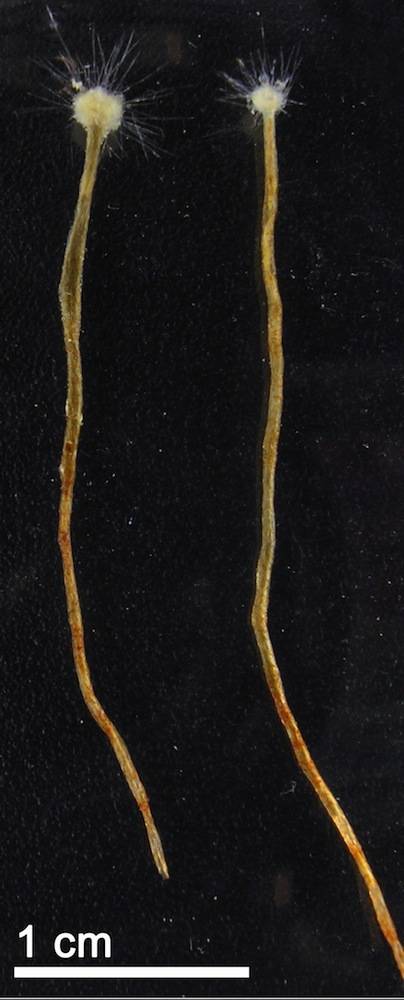 Amoeboid Protist. A strange, single-celled organism, this protist builds a shell out of the discarded skeletal remnants of sponges.
Amoeboid Protist. A strange, single-celled organism, this protist builds a shell out of the discarded skeletal remnants of sponges. -
10.
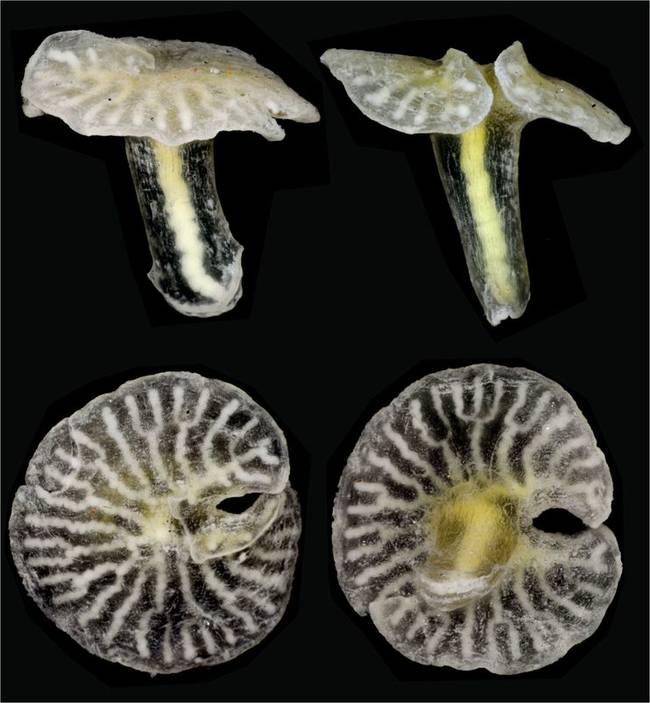 Dendrogramma Enigmatical. These mushroom-looking creatures were a real surprise to science. First discovered in the deep seas off of Australia in 1986, they were just classified and described by biologists this year. Why were they so perplexed? They don't fit into any existing animal group, resembling only long-extinct species. A discovery like this could entirely rearrange our understanding of evolution, the nervous system, and tissue development.
Dendrogramma Enigmatical. These mushroom-looking creatures were a real surprise to science. First discovered in the deep seas off of Australia in 1986, they were just classified and described by biologists this year. Why were they so perplexed? They don't fit into any existing animal group, resembling only long-extinct species. A discovery like this could entirely rearrange our understanding of evolution, the nervous system, and tissue development. -
11.
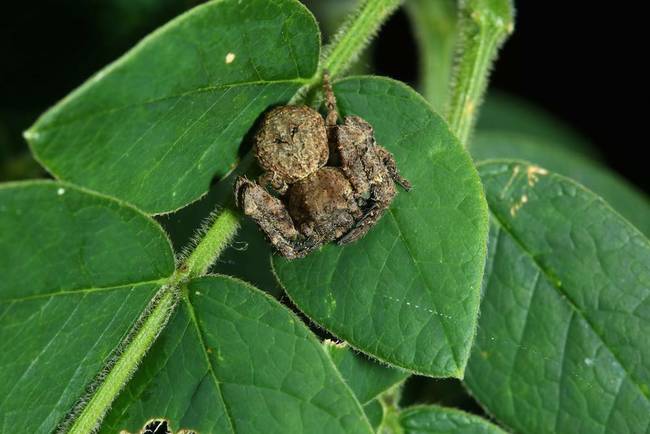 Bird-Turd Spider. Yep, you read that right. This spider disguises itself as a hunk of bird poo, because no one is going to eat a piece of poop they find on a leaf, right? While scientists have yet to publish their new discovery, they have done their research and have come to the preliminary conclusion that this poo nugget arachnid, found on an Indian tiger reserve, is a new member of the genus.
Bird-Turd Spider. Yep, you read that right. This spider disguises itself as a hunk of bird poo, because no one is going to eat a piece of poop they find on a leaf, right? While scientists have yet to publish their new discovery, they have done their research and have come to the preliminary conclusion that this poo nugget arachnid, found on an Indian tiger reserve, is a new member of the genus. -
12.
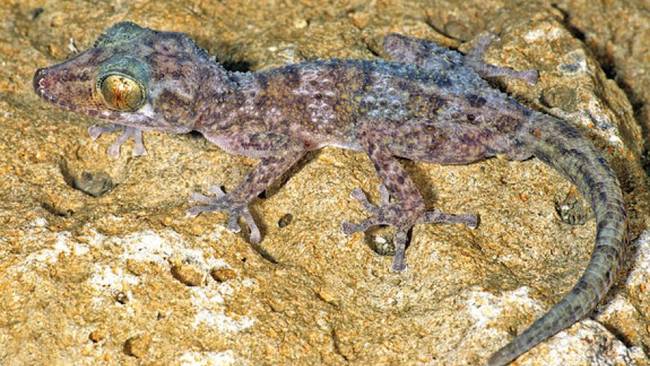 Nocturnal Gecko. Inhabiting an old French fort in northern Madagascar, this night-crawling lizard is already considered "critically endangered." They measure in at about four inches long, including their tails, and cling to the walls of the old fort with square-shaped suctions on their feet.
Nocturnal Gecko. Inhabiting an old French fort in northern Madagascar, this night-crawling lizard is already considered "critically endangered." They measure in at about four inches long, including their tails, and cling to the walls of the old fort with square-shaped suctions on their feet. -
13.
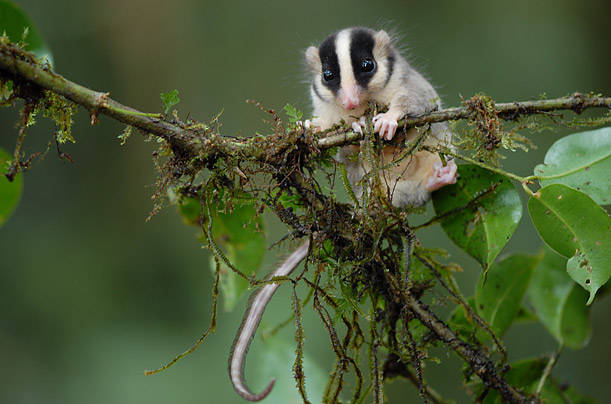 A Yet To Be Named Fluff Ball. This fuzzy guy was originally spotted in 1985 in Papua New Guinea, but is newly distinct as its own species as of this year. What's taking so long to get this critter named? Might I suggest "Cutest Lil' Guy Ever?"
A Yet To Be Named Fluff Ball. This fuzzy guy was originally spotted in 1985 in Papua New Guinea, but is newly distinct as its own species as of this year. What's taking so long to get this critter named? Might I suggest "Cutest Lil' Guy Ever?" -
14.
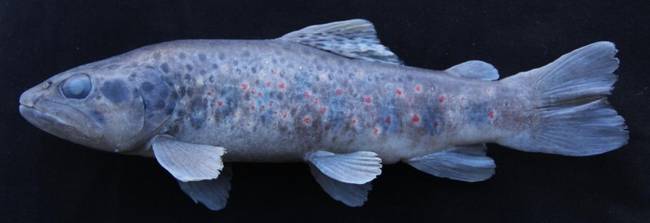 Turkish Trout. Part of the fish family that includes salmon and chars, one of this fish's qualities that distinguishes it from the other 200 or so trout species is his larger mouth. It lives in the cold, clear waters of Antalya, Turkey.
Turkish Trout. Part of the fish family that includes salmon and chars, one of this fish's qualities that distinguishes it from the other 200 or so trout species is his larger mouth. It lives in the cold, clear waters of Antalya, Turkey. -
15.
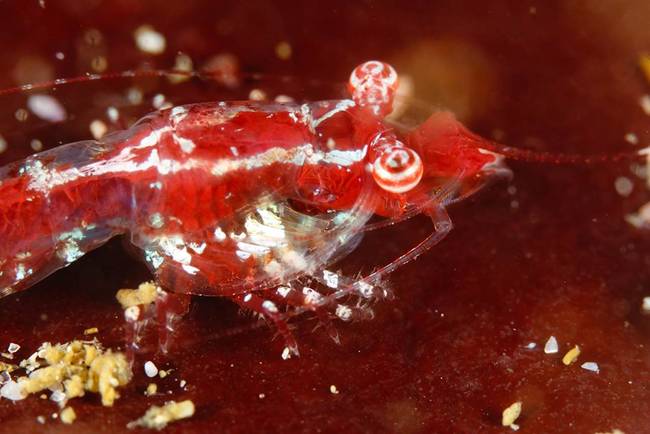 Star Gazing Shrimp. Discovered in South African waters, this shrimp wards off predators with his big, beautiful, peppermint eyes. Move over, Zooey Deschanel, there's a new wide eyed cutie in town.
Star Gazing Shrimp. Discovered in South African waters, this shrimp wards off predators with his big, beautiful, peppermint eyes. Move over, Zooey Deschanel, there's a new wide eyed cutie in town. -
16.
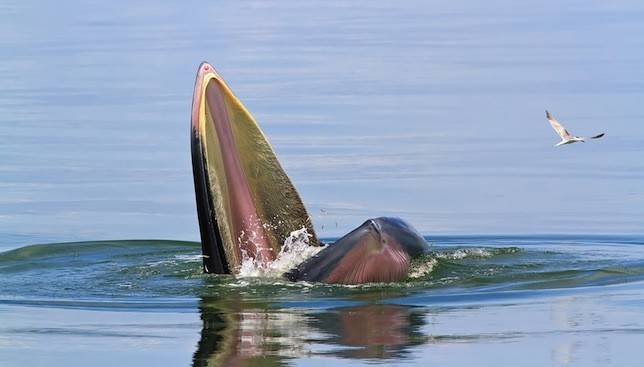 A Subspecies or an Entirely New Species, Bryde's Whales. Pronounced "brooda's," this whale, discovered in an underwater canyon off the panhandle of Florida, has a genetic makeup unlike any other documented whale. This whale, if concretely proven to be an entirely new species, would be the single-most endangered species of whale on the planet, with only 50 of them in existence.
A Subspecies or an Entirely New Species, Bryde's Whales. Pronounced "brooda's," this whale, discovered in an underwater canyon off the panhandle of Florida, has a genetic makeup unlike any other documented whale. This whale, if concretely proven to be an entirely new species, would be the single-most endangered species of whale on the planet, with only 50 of them in existence. -
17.
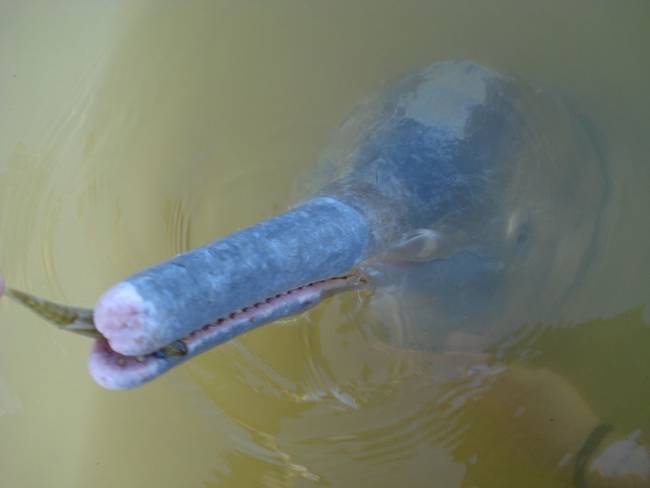 Araguaian Boto River Dolphin. Yet another newly discovered and highly endangered species, this river dolphin was found in the Araguaia River Basin in central Brazil.
Araguaian Boto River Dolphin. Yet another newly discovered and highly endangered species, this river dolphin was found in the Araguaia River Basin in central Brazil. -
18.
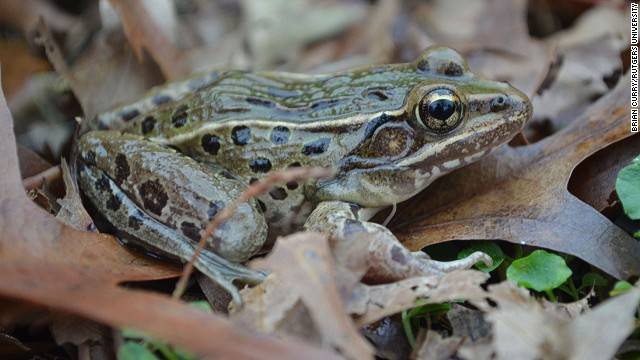 Atlantic Coast Leopard Frog. A perfect example of an undiscovered species living riight under our noses, this amphibian inhabits the coast stretching from Connecticut to North Carolina, but was discovered in Staten Island.
Atlantic Coast Leopard Frog. A perfect example of an undiscovered species living riight under our noses, this amphibian inhabits the coast stretching from Connecticut to North Carolina, but was discovered in Staten Island. -
19.
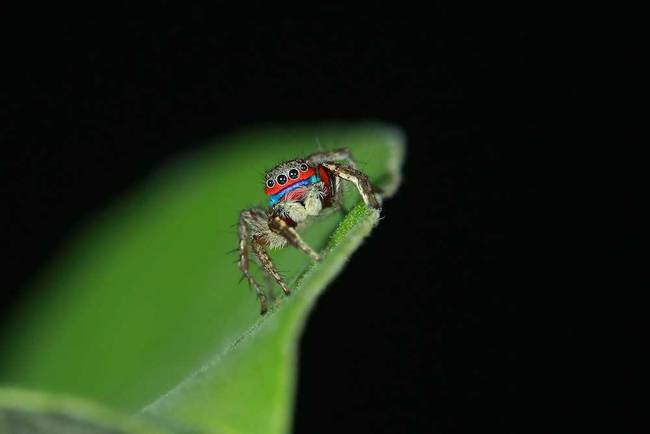 Jumping Spider. Not to spook the arachnophobic, but here's another new species of spider found on the Indian Tiger Reserve. You have to admit, he's kind of adorable, and almost handsome with that iridescent blue mustache that he uses to attract mates. If you're going to warm up to any spider, let it be this one.
Jumping Spider. Not to spook the arachnophobic, but here's another new species of spider found on the Indian Tiger Reserve. You have to admit, he's kind of adorable, and almost handsome with that iridescent blue mustache that he uses to attract mates. If you're going to warm up to any spider, let it be this one.
- REPLAY GALLERY
-
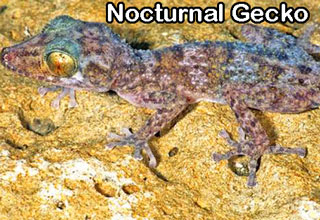
- 19 Animal Species Discovered in 2014
- NEXT GALLERY
-

- Twitter Ignites With More Fake Melania Hysteria
Skeleton Shrimp. This tiny shrimp, measuring in at only a few millimeters long, lives in sea caves on Santa Catalina Island off the coast of California.
19/19
1/19


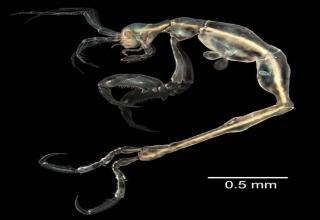




49 Comments